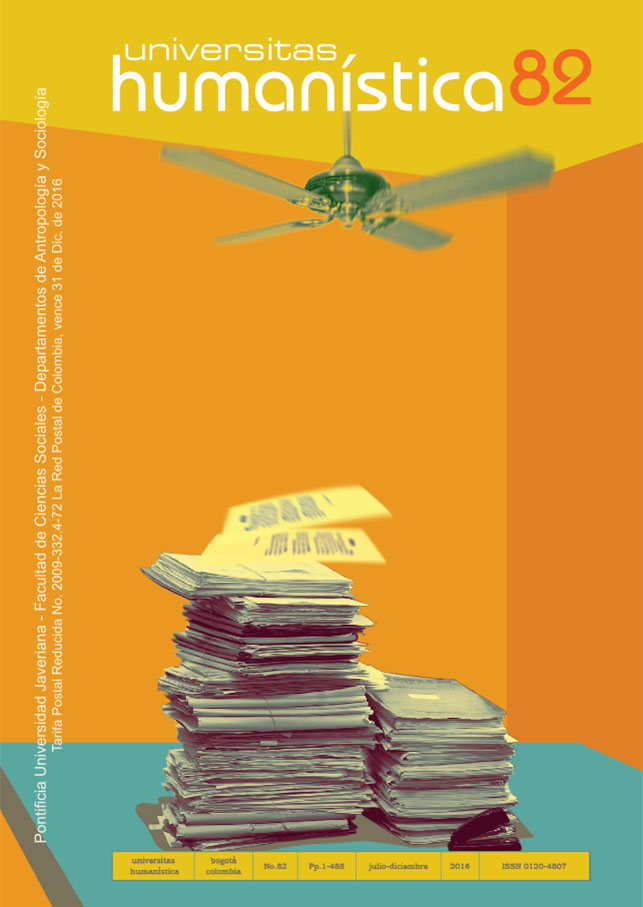Abstract
Public policies subscribe into specific governmentality forms, as long as they are linked to certain government projects. Although these policies may have an instrumental role in the legitimation of a state domination project, their effectivity cannot be taken for granted. They take social forms depending on the particular contexts where they are implemented, while also having different readings and interpretations made by those who make them and the ones the policies are made for. In the light of the case study of the colonization and rural development programs executed between 1960 and 1980 by the Caja Agraria and the Incora in the Caquetá Foothill, we will see how the practices used by the settlers and public officers involved in the implementation of these programs may end up subverting their initial purposes, making them take unexpected turns.

This journal provides immediate open access to its content on the principle that making research freely available to the public, encourages greater global exchange of knowledge.
The journal Universitas Humanística is registered under a Creative Commons Attribution 4.0 International Public License. Thus, this work may be reproduced, distributed, and publicly shared in digital format, as long as the names of the authors and Pontificia Universidad Javeriana are acknowledged. Others are allowed to quote, adapt, transform, auto-archive, republish, and create based on this material, for any purpose (even commercial ones), provided the authorship is duly acknowledged, a link to the original work is provided, and it is specified if changes have been made. Pontificia Universidad Javeriana does not hold the rights of published works and the authors are solely responsible for the contents of their works; they keep the moral, intellectual, privacy, and publicity rights.
Approving the intervention of the work (review, copy-editing, translation, layout) and the following outreach, are granted through an use license and not through an assignment of rights. This means the journal and Pontificia Universidad Javeriana cannot be held responsible for any ethical malpractice by the authors. As a consequence of the protection granted by the use license, the journal is not required to publish recantations or modify information already published, unless the errata stems from the editorial management process. Publishing contents in this journal does not generate royalties for contributors.


